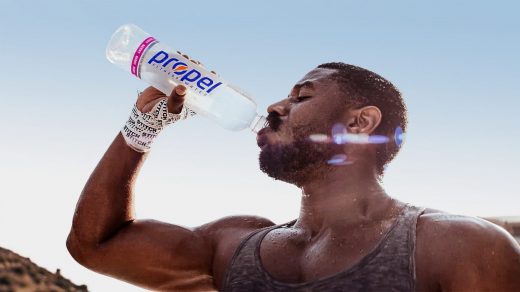Why PepsiCo’s Gatorade is now a portfolio of brands with Muscle Milk, Propel, and more
For most of the past decade, PepsiCo’s ambition for Gatorade has been to go far beyond its sports drink origins. It has since expanded to products like energy chews, gels, and whey protein powder. It’s also launched customizable sports bottles, sweat patches that measure your perspiration levels, as well as training tips and customizable hydration plans on its app and website. Now the company is using the Super Bowl as the stage to announce that it’s officially bringing together all of PepsiCo’s sports and fitness brands—Gatorade, Fast Twitch, Muscle Milk, Propel, and Evolve—under the Gatorade umbrella in a newly formed brand portfolio. “This is all about bringing these brands together to go from just a sports drink to a fully connected ecosystem,” says Mike Del Pozzo, president and general manager of the Gatorade Portfolio. Fast Twitch is a recently launched Gatorade energy drink, and both Muscle Milk and Evolve are protein drinks and supplements acquired by PepsiCo in 2019. Propel is an electrolyte-infused water launched by PepsiCo in 2000; the company says it has had eight straight years of sales growth. Propel also announced a brand partnership with actor Michael B. Jordan in recent weeks, which includes a tie-in with the film Creed III, coming out on March 3. Euromonitor International predicts that the $13 billion U.S. sports drink market will grow to nearly $17 billion by 2027. Gatorade controls about 63% of that market by volume today, while Coca-Cola’s brands BodyArmor and Powerade have about 29% combined. Coca-Cola acquired the fast-growing BodyArmor in 2021 and this month launched a redesigned Powerade, all taking aim at the orange lightning bolt. Darren Seifer, NPD Group food analyst, says there has been an increase in consumption of sports drinks and other oral electrolyte solutions, potentially tied to the boost in home gym equipment sales and gym memberships in recent years. “Protein drinks and other supplement drinks are consumed a bit more often than sports drinks,” Seifer says. “The interesting thing that separates the two is when they’re consumed. The protein drinks tend to be consumed more often in the morning, the time of the day when people have the most healthful aspirations. We see sports drinks do better after lunch.” This helps explain Gatorade’s ambition to be a go-to part of its consumers’ entire day. That goal hasn’t changed since 2016, when the brand tested its own line of yogurt and other foods aimed at athletes. What’s evolved is the path to achieving its ambition, tapping into PepsiCo’s roster with the new Portfolio, even suggesting other PepsiCo brands like Quaker Oats as part of its nutrition advice. “Athletes need different products at different times,” Del Pozzo says, noting that a consumer could conceivably wake up in the morning and have a Fast Twitch before working out, then a Core Gatorade during the workout, a Gatorlyte afterward or a muscle recovery product like Evolve or Muscle Milk, as well as drinking Propel water throughout the day. “So this idea of marketing as a portfolio is something we’re taking more seriously.” That means both marketing and advertising as a broader Gatorade portfolio with “brought to you by Gatorade”-type branding, much like Nike markets itself as an overall sports brand but also in sport-specific ways. “We are working towards integrated storytelling over time, figuring out how to tell this to consumers in a way that is easy and that makes sense across all these brands,” says Anuj Bhasin, Gatorade’s chief brand officer. “What we’ve learned by bringing the Gatorade brand in is that it lifts all these other brands up and gives people a better understanding of how to use them.” Before making the move to create this new portfolio, Bhasin says the company tested the Gatorade-centric strategy and found that there was an immediate increase in purchase intent—all based on brand trust and understanding that what was inside the product had been validated by the Gatorade brand. It’s a reaction that has made Gatorade bullish on its future expansion prospects. “We’re going to be exploring ways to innovate there through technology to enable things like real-time hydration tracking,” Bhasin says. “We see this in consumables all the way to athletic equipment in the future.”
(35)



